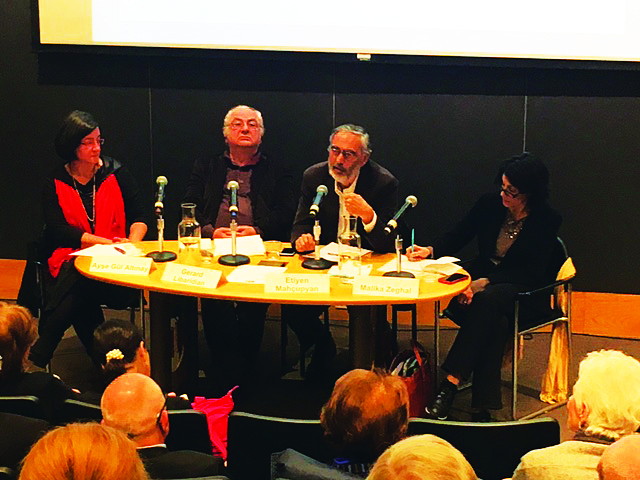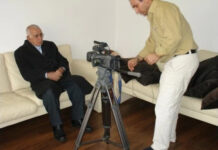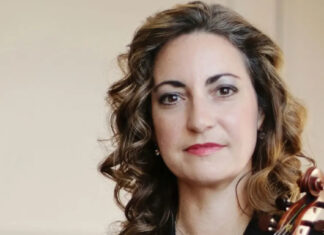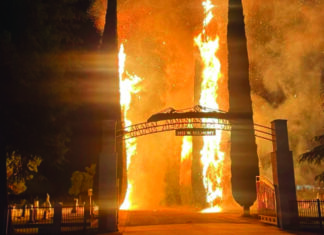CAMBRIDGE, Mass. — The third annual Hrant Dink Memorial Peace and Justice Lecture took place on April 5 on the topic of minorities and human rights in Turkey. The panel discussion, sponsored by the Mahindra Humanities Center at Harvard University, featured panelists Ayse Gul Altinay, Gerard Libaridian and Etyen Mahçupyan, with moderator Malika Zeghal.
The three panelists brought very different sensibilities and viewpoints to the discussion.
Altinay, who is a professor of anthropology at Sabançi University, discussed her personal journey growing up knowing nothing about the Armenian Genocide to her later collaboration with Fethiye Çetin on The Grandchildren: The Hidden Legacy of “Lost” Armenians in Turkey, which was published in 2014.
Altinay spoke about her early interest in studying the tendency toward militarization in Turkish culture. Her first book, The Myth of the Military-Nation: Militarism, Gender and Education, had only one reference to the Armenian Genocide, and it was a footnote and the phrase itself was put in quotation marks. She expressed shame and blamed herself for her lack of curiosity in investigating what the real story was.
In effect, she said, “I was contributing to the silence” about the Armenian Genocide.
In the early 2000s, several books were published in Turkey about the Armenians, including one by Takuhi Tovmasyan, about food and the family table, as well as Çetin’s book about her Armenian grandmother, which became a turning point for Altinay. The notion that about 200,000 Armenian women were coerced into marrying Turkish men during the time of the Genocide, means that millions of Turks have Armenian ancestry.










